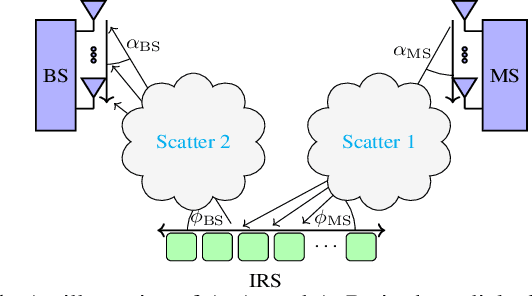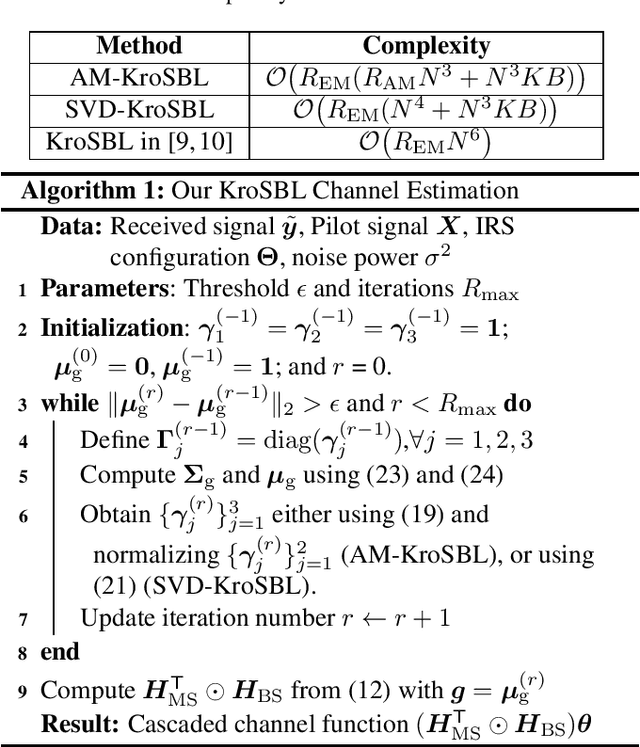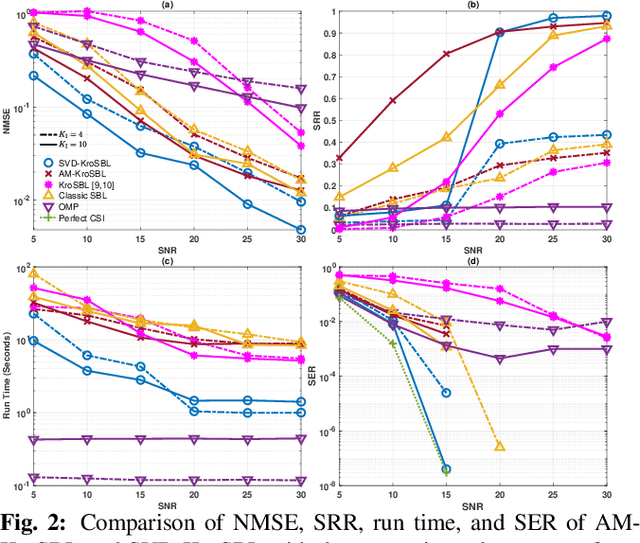Structure-aware Sparse Bayesian Learning-based Channel Estimation for Intelligent Reflecting Surface-aided MIMO
Paper and Code
Oct 20, 2022


This paper presents novel cascaded channel estimation techniques for an intelligent reflecting surface-aided multiple-input multiple-output system. Motivated by the channel angular sparsity at higher frequency bands, the channel estimation problem is formulated as a sparse vector recovery problem with an inherent Kronecker structure. We solve the problem using the sparse Bayesian learning framework which leads to a non-convex optimization problem. We offer two solution techniques to the problem based on alternating minimization and singular value decomposition. Our simulation results illustrate the superior performance of our methods in terms of accuracy and run time compared with the existing works.
 Add to Chrome
Add to Chrome Add to Firefox
Add to Firefox Add to Edge
Add to Edge